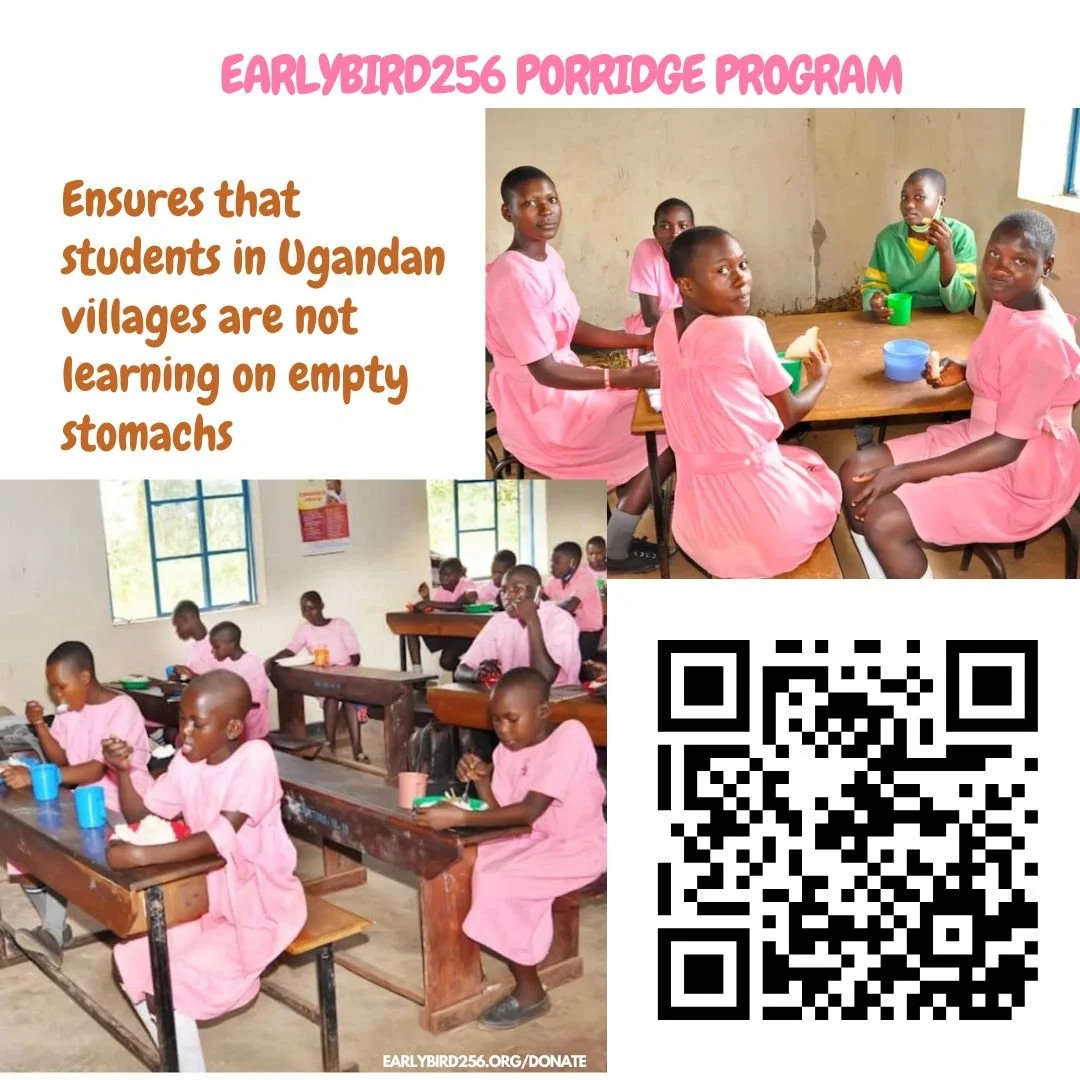Porridge Program: The influence of maize flour
In Uganda and other parts of East Africa, school meals often feature porridge for breakfast and posho with beans for lunch. These staples, particularly porridge and posho made from maize flour, are crucial for maintaining children's health and enabling them to learn effectively by ensuring they are not hungry.
Beyond its nutritional benefits, maize flour is a practical choice due to its affordability and long shelf life, allowing for bulk purchasing and storage. Locally grown maize also creates market opportunities for Ugandan farmers within their communities. Some schools, like Rev. Naynega, partner with parents by requesting maize contributions processed into flour by local millers.
A typical Ugandan school breakfast and lunch
In Uganda, a typical school breakfast consists of porridge and a snack, with some schools offering bread or a boiled egg. Milk tea is available at other schools. Lunch usually features posho and beans, a typical dinner for boarding students, occasionally substituted with rice. Posho and beans are a cost-effective and easily prepared meal for large groups. This combination is also nutritious, providing carbohydrates from maize and protein and fiber from beans. For many students in under-resourced communities, this school meal may be their only substantial meal of the day.
Hunger in the classroom can lead to low energy, poor concentration, anxiety, and feelings of shame. Consistent school meals, such as porridge or posho and beans, can positively impact behavior, mental resilience, and concentration, creating a more conducive learning environment.
EarlyBird256's goal for the sustainability of the Porridge Program
Sustainable Sourcing: Partner with a local farmer or maize supplier.
Community Engagement: Conduct conversations with parents to emphasize the importance of school lunches.
Holistic Student Support: Supplement regular testing and tutoring with mental wellness check-ins for primary candidates.
Support for the EarlyBird256 Porridge Program
Fundraising to support our cause.
Donating to local food banks to combat hunger.
Sharing our mission and impact.
Bonus: Prioritize your well-being while contributing.

